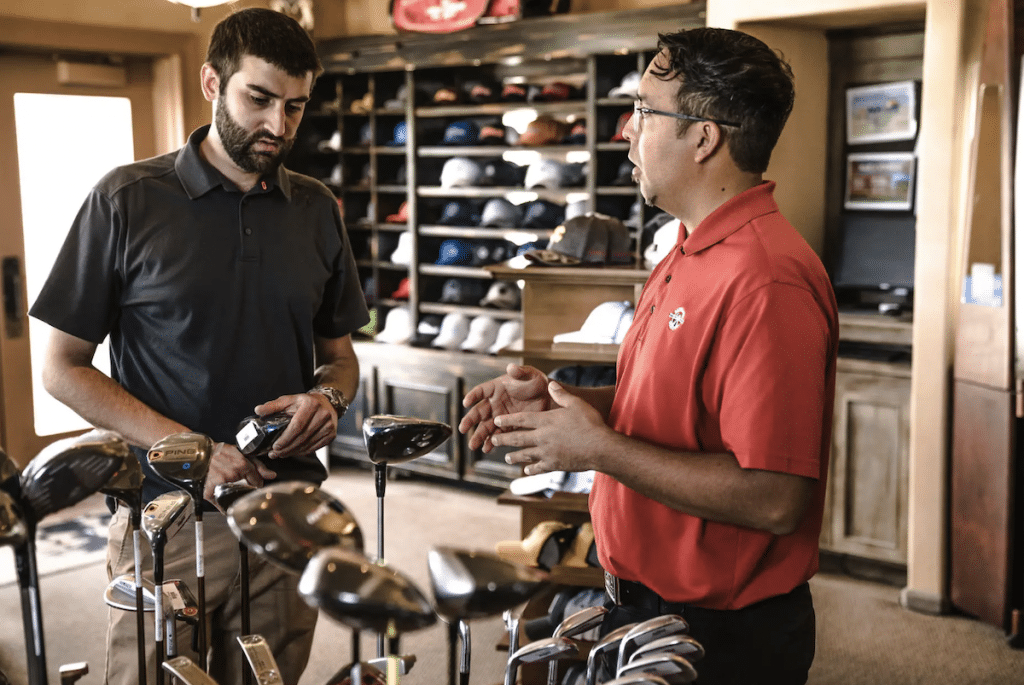Golf is a popular and challenging sport that requires skill, precision, and the right equipment. One of the most crucial factors in improving your game is selecting the right golf clubs. With a wide range of options available, it can be overwhelming for beginners to know where to start. In this comprehensive guide, we will discuss the key factors to consider when choosing golf clubs and provide valuable tips to help beginners make the right decision.
Understanding the Basics of Golf Clubs
Before diving into the selection process, it’s essential to understand the different types of golf clubs and their purposes. A typical set of golf clubs consists of irons, woods, wedges, and a putter. Each type of club is designed for specific shots and distances. For example, irons are used for shorter shots and offer more control, while woods are designed for longer shots and provide more distance. Wedges are used for shots around the green, and putters are used on the putting green.
Factors to Consider When Choosing Golf Clubs
- Skill Level: As a beginner, it’s crucial to choose golf clubs that are forgiving and easy to use. Look for clubs that have a larger sweet spot and offer forgiveness on off-center hits. This will help you achieve better results and build confidence in your game.
- Shaft Flex: The flex of the shaft is another vital factor to consider. The shaft’s flex determines how much it bends during the swing, affecting the club’s performance. Beginners generally benefit from a more flexible shaft, as it can help generate more clubhead speed and distance. However, it’s important to find a balance that suits your swing speed and style.
- Clubhead Design: The design of the clubhead can significantly impact your game. Beginners should look for clubs with a larger clubhead, as this will provide a larger hitting area and increase the chances of making solid contact with the ball. Additionally, perimeter-weighted clubheads can help increase forgiveness and reduce the impact of mishits.
- Budget: Golf clubs can vary greatly in price, so it’s important to establish a budget before starting your search. While it’s tempting to invest in the latest and most expensive clubs, beginners can find excellent options at more affordable price points. Consider purchasing a pre-owned set or exploring entry-level options that offer good quality at a lower cost.
- Grip Size: The grip size of the club is often overlooked but can significantly affect your comfort and control while swinging. Beginners should choose a grip size that allows for a relaxed and natural grip, ensuring proper hand placement and reducing the risk of slipping during the swing.
Tips for Choosing the Right Golf Clubs
- Get Fitted: It’s highly recommended to get fitted for golf clubs, especially as a beginner. A professional club fitting can help determine the right club specifications for your swing, such as shaft length, lie angle, and grip size. This will ensure that your clubs are tailored to your individual needs and maximize your potential on the course.
- Seek Advice: Don’t hesitate to seek advice from golf professionals or experienced golfers when choosing golf clubs. They can provide valuable insights and recommendations based on their knowledge and expertise. Additionally, try out different clubs before making a purchase to see how they feel and perform. Many golf stores have hitting bays or simulators where you can test clubs before making a decision.
- Consider a Starter Set: If you’re new to golf and unsure about committing to a full set of clubs, consider purchasing a starter set as you’d do some free spins before playing in a casino. These sets typically include the essential clubs needed for beginners and are more budget-friendly. As you progress and improve your skills, you can gradually add more clubs to your collection.
- Research and Read Reviews: Take the time to research different golf club models and read reviews from both experts and fellow beginners. This will give you a better understanding of the clubs’ performance, quality, and value for money. Websites, forums, and golf magazines are excellent sources of information and can help you make an informed decision.
- Consider Customization Options: As you become more experienced and committed to the sport, you may want to explore customization options for your golf clubs. This could include adjusting the loft and lie angles, changing grips, or even getting custom shafts. Customization can help fine-tune your clubs to match your unique swing characteristics and preferences.
Conclusion
Choosing the right golf clubs is crucial for beginners who want to improve their game and enjoy the sport to the fullest. By considering factors such as skill level, shaft flex, clubhead design, budget, and grip size, beginners can make informed decisions when selecting their clubs. Remember to get fitted for clubs, seek advice from professionals, and consider a starter set if you’re just starting out. With the right clubs in hand, you’ll be on your way to mastering the game of golf.
